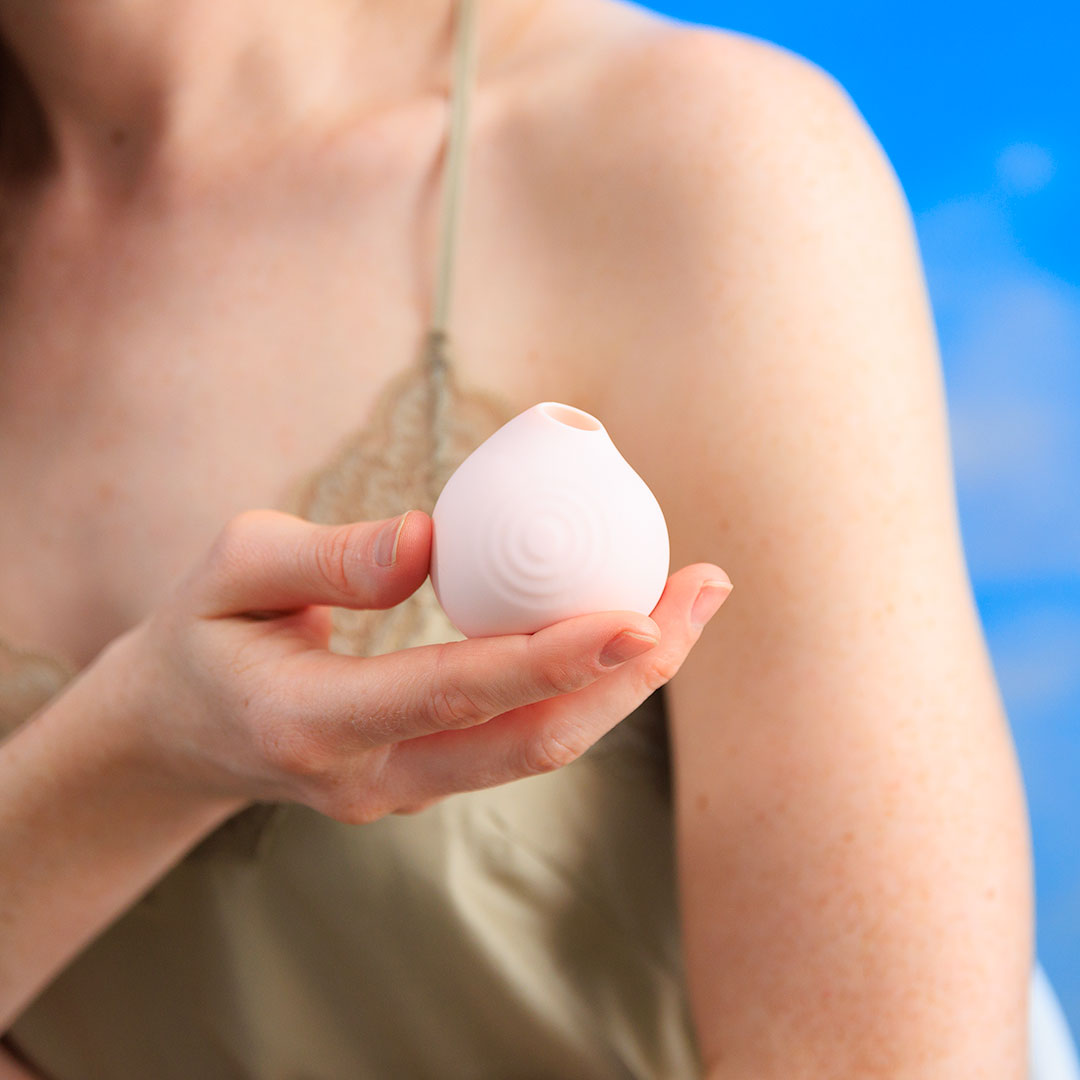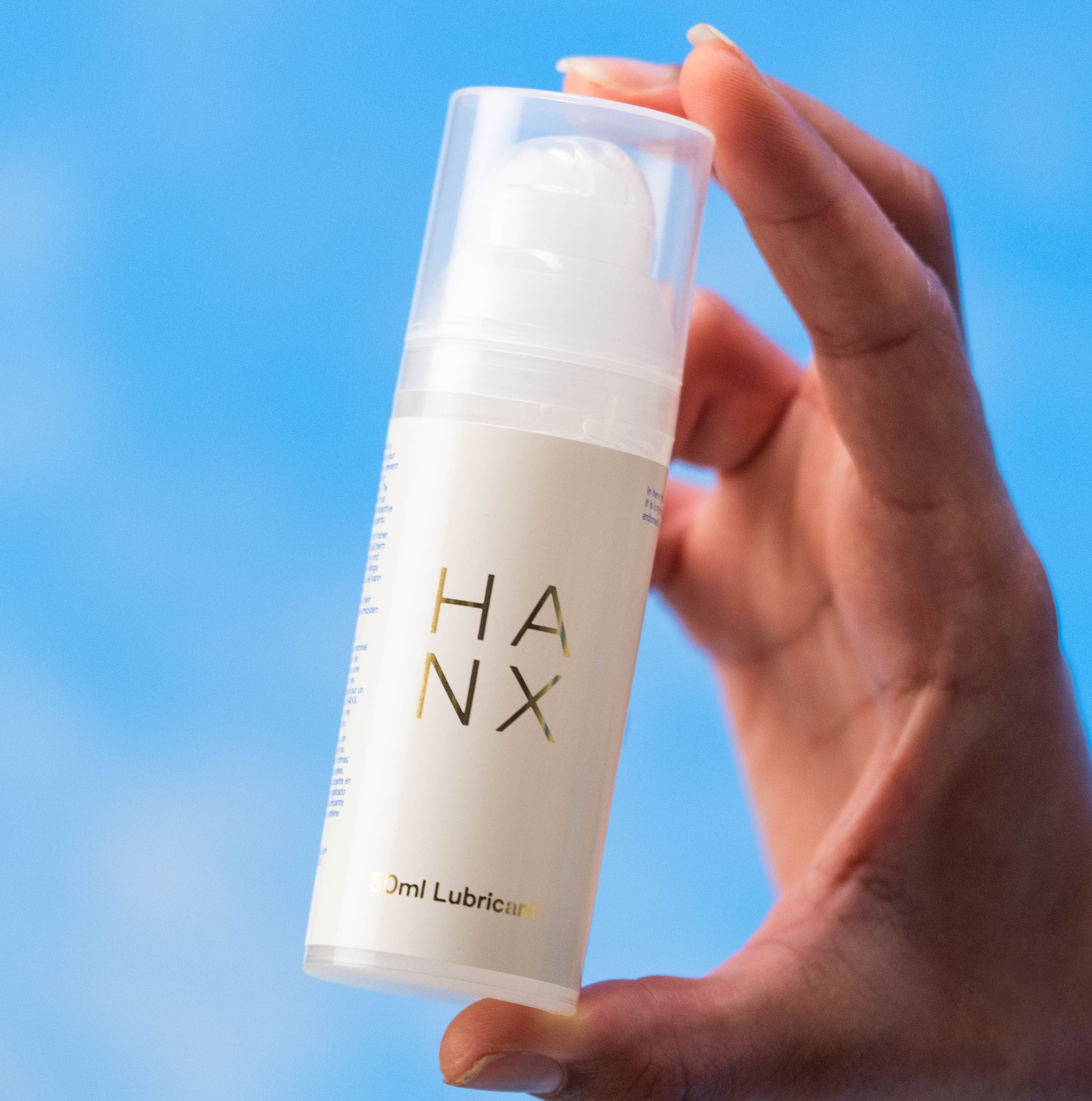The Relationship Between Vaginal Microbiome and Bacterial Vaginosis
Ever wondered what ‘vaginal microbiome’ actually means? It’s the balance of bacteria that makes up our vaginal environment and helps to fight off certain infections, like bacterial vaginosis. But what does vaginal microbiome have to do with the ultra-irritating, recurring vaginal infection, BV? Over to our very own Dr HANX (gynaecology expert and HANX Co-Founder Sarah Welsh 👋) is here to walk us through the dos and don’ts of vaginal care. Ready for a dose of vaginal microbiome 101? Read on...
What is the vaginal microbiome?
You might be familiar with the gut microbiome, but it’s likely that you're less aware of your vaginal microbiome. “Microbiome” is the name given to the microorganisms (aka bacteria) living somewhere, so the vaginal microbiome is basically the environment of bacteria living in your vagina. The “microbiome” can also be referred to as “microbiota” or “flora.” The microorganisms that colonise the vagina were discovered by the German gynaecologist Albert Döderlein in 1892 and this bacteria can have a significant effect on vaginal health.
Why is the vaginal microbiome important and what effect does the vaginal microbiome have on my overall wellbeing?
Vaginal microbiome can affect your ability to fight off infections, such as thrush and bacterial vaginosis as well as more serious pelvic infections, but it can also affect your likelihood of getting pregnant or miscarrying a pregnancy. The vaginal microbiome also has links to developing certain types of cancers.
Let’s talk about the good bacteria of the vaginal microbiome.
Naturally, our vaginas include “good bacteria” that help keep the vagina healthy, namely the anaerobic bacteria (bacteria that live without the need for oxygen) and lactobacilli bacteria. These lactobacilli are what give the vagina to “self-cleaning” title. They create an acidic environment (a pH of about 3.8-4.5) which prevents harmful microorganisms from growing and causing infections, the really common ones being Thrush or BV.
Let’s recap - what is bacterial vaginosis (or BV)?
Bacterial Vaginosis (BV) is a common vaginal condition caused by an overgrowth of ‘bad’ bacteria in the vagina, making the environment less acidic, and causing a foul or ‘fishy’ smelling vaginal discharge. BV isn’t a sexually transmitted infection (STI) but it can be more pronounced after sex, and some women experience BV after having sex with a new partner.
What happens to the vaginal microbiome in BV?
In BV, the anaerobic bacteria increase in number, which in turn kills off the lactobacilli bacteria and ultimately disrupts the natural balance of the vagina. This causes it to become less acidic than normal, further perpetuating the growth of anaerobic bacteria and creating a vicious cycle in your nether regions.
Can the good bacteria in the vaginal microbiome protect against infections or disease?
Well… yes. Higher levels of lactobacilli in your vagina have been associated with a reduced risk of STIs and pelvic inflammatory disease (PID). There has also been some research by the Eve Appeal that shows an association between developing ovarian cancer and a lower level of vaginal lactobacilli. Good bacteria may also help prevent preterm labour and miscarriage in pregnant people. However, there are many factors that impact premature labour, and more research needs to be done into the effect the vaginal microbiome has on pregnancy and labour.
What conditions are associated with the vaginal microbiome?
The main conditions we associate with a disruption in the vaginal microbiome include:
- Bacterial vaginosis
- Yeast infections
- Urinary Tract Infections
- Abnormal vaginal discharge
- Vaginitis (the irritation and inflammation of the vagina)
Other secondary conditions affected by the vaginal microbiome include:
- Increased risk of STIs
- Pelvic Inflammatory Disease
- Links with infertility and premature labour
There is more research to be done into the role of the vaginal microbiome, but from what we already know, it has a very important effect on our overall wellbeing.
Are all vaginal microbiomes made the same?
No! As we see throughout medicine, everyone is different and there are many variations on “normal.” The vaginal microbiome is no difference, and no one size fits all. As is the case with the gut, your vaginal microbiome is unique and influenced by many factors including your genetics, age, diet, and hormones.
That being said, the main factor here is that anything less than about 90% of lactobacilli in the vagina can put you at risk of infections.
How do I look after my vaginal microbiome?
The best thing to do to keep a healthy vaginal microbiome (and keep the infection-fighting lactobacilli happy), is to disrupt it as little as possible! Avoid triggers that can disrupt the environment, as much as possible.
What can disrupt my vaginal microbiome?
Anything you put inside it or wash inside your vagina with has the capability to disrupt the microbiome. Other things that can affect it are medications that affect your whole body. See the main things to watch out for below:
- Antibiotics - antibiotics that are designed to kill a wide spectrum of bacteria (which may be unwanted in another area of the body) can affect your vaginal microbiome too. They can also remove the lactobacilli, meaning infections occur in the vagina. 🦠
- Intimate hygiene products – as we have discussed, the vagina is “self-cleaning” and therefore, we do not need any special washes to change the environment in our vagina. These washes often affect the microbiome and cause the “bad bacteria” to overgrow and infections to thrive. 🧼
- Some types of contraception methods - for example, the copper coil, and the combined oral contraceptive pill can sometimes affect the vaginal pH. 💊
- Sex - sex can affect the vaginal microbiome for example if semen is in contact with the vagina, as semen is alkaline and can affect the naturally acidic vaginal pH. Make sure you practise safe sex. ⚠️
- Tampons and periods - menstrual blood is slightly alkaline and can therefore affect the naturally acidic pH of the vagina. Fem-care products such as tampons can be a place for bacteria to grow and multiply, so make sure you change your tampon every 8 hours and choose an organic menstrual care product such as Dame. 🩸
Can I have sex with a vaginal infection or how soon after a vaginal infection can I have sex?
If you have a vaginal infection, your mind may well be on whether or not you should abstain from sex. It depends on what you're treating, but in most cases, a little break from penetrative sex is likely good news for your vagina.
Many people may be put off by the discharge or odour from infections such as bacterial vaginosis or thrush, and sometimes sex can cause pain if you have vaginitis (when the vaginal tissues become inflamed). However, despite these symptoms, it is also important to ensure your vaginal microbiome recovers before you start having sex again.
BV often comes back if you don’t allow your vagina to fully recover, so make sure you leave enough time to finish your BV gel treatment course or any antibiotics from your doctor. This will ensure your vagina is back to peak performance pH before you get back to any hanky panky. If you do decide to have vaginal sex, remember that the gels or antibiotic creams used to treat bacterial vaginosis can also affect latex condoms, so make sure to get advice from your GP or healthcare provider, to ensure you're not at risk of STIs and/or unplanned pregnancy.
Oral sex is also off the cards during this time, as the yeast infection can be passed via mouth too. And not forgetting the sex toys - wash those, use condoms and don't share!
What about sex with cystitis or a urinary infection?
Having sex can push bacteria from outside of the body, up through the urethra (the tube that carries urine out from the bladder to the outside of your body when you pee) and cause cystitis or a urinary infection. Once your symptoms have settled, either on their own and with some cystitis relief sachets, or after taking a course of antibiotics, then you’re ok to have sex as soon as you’re comfortable to do so.
How should my vaginal discharge smell normally?
Your vaginal discharge will likely change throughout your menstrual cycle and in response to different environments. However, the natural smell should not be unpleasant. A very slight smell is normal, which can be described as mild and musky, but anything foul or unusual for you is a sign something is not right. Any concerns see your health professional to get checked out.
How do I keep my vagina clean?
A good place to end… The concept of a ‘clean’ vagina isn’t what you’ve probably been sold by companies touting vaginal cleansing and fragrance-based products. Remember, a clean vagina is simply a vaginal microbiome with a healthy amount of good bacteria.
Want more?
- Order discreet, effective vaginal health treatments now.
- "Why does my girlfriend keep getting UTIs?" We answer your partner's big dilemma...






















